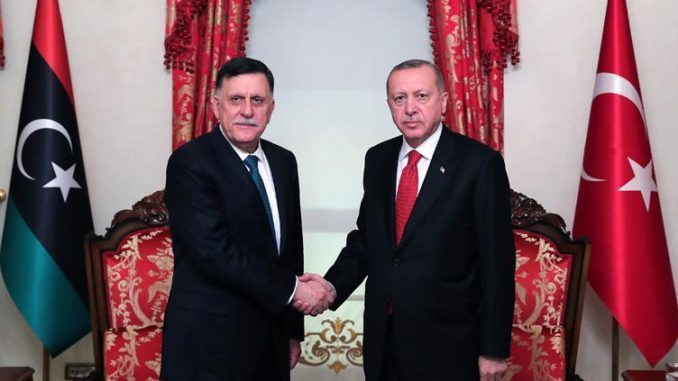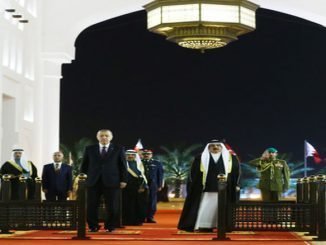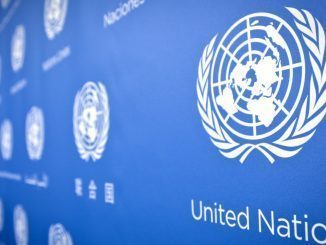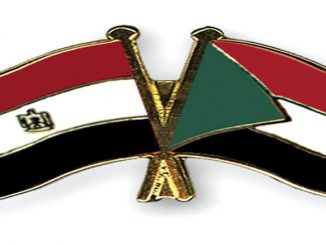
A memorandum on maritime boundaries in the eastern Mediterranean Sea is important to secure Libya’s natural resources, the country’s High Council of State said Tuesday.
Libya’s UN-recognized government has a right to sign memoranda with any country to ensure the country’s security and the protection of its resources, the council said in a statement.
Regarding condemnations by Egypt, Greece and the Greek Cypriot Administration as strange, the council said it gives great importance to enhancing relations with these countries.
On November 27, Turkish President Recep Tayyip Erdogan held a closed-door meeting with Fayez al-Sarraj, chairman of the Presidential Council of Libya, at the Dolmabahce Palace in Istanbul which lasted two hours and 15 minutes.
“The Security and Military Cooperation” and “Restriction of Marine Jurisdictions” agreements were signed between the two countries.
Libya, an oil-rich country, has remained beset by turmoil since 2011 when longtime ruler Muammar Gaddafi was ousted and killed in a NATO-backed uprising after four decades in power.
The country has since seen the emergence of two rival seats of power: one in eastern Libya, to which military commander Khalifa Haftar is affiliated, and the Tripoli-based Government of National Accord (GNA), which enjoys UN recognition.
Forces aligned with Haftar launched a campaign in April to capture Tripoli from the GNA.
Clashes between the two sides have left more than 1,000 people dead and around 5,500 wounded, according to the World Health Organization (WHO).
Turkey meanwhile has consistently contested the Greek Cypriot administration’s unilateral drilling in the Eastern Mediterranean, asserting that the Turkish Republic of Northern Cyprus (TRNC) also has rights to the resources in the area.
However, Libya’s neighbor Egypt had dismissed the deal as “illegal”, and Greece said any such accord would be geographically absurd because it ignored the presence of the Greek island of Crete between the coasts of Turkey and Libya.
Tensions are already running high between Athens and Ankara because of Turkish drilling in the eastern Mediterranean off the coast of the divided island of Cyprus, and the European Union has prepared sanctions against Turkey in response.
“This means protecting Turkey’s rights deriving from international law,” Turkish Foreign Minister Mevlut Cavusoglu said of the memorandum of understanding on the “delimitation of maritime jurisdictions”.
He said that such accords could be agreed with other countries if differences could be overcome and that Ankara was in favor of “fair sharing” of resources, including off Cyprus.
Egypt, which has been at odds with Turkey since the Egyptian military overthrew former President Mohamed Morsi in 2013, condemned the deal as “illegal and not binding or affecting the interests and the rights of any third parties”.
Libya has been divided since 2014 into rival military and political camps based in the capital Tripoli and the east. Serraj’s government is in conflict with forces led by Khalifa Haftar based in eastern Libya.
Haftar controls most of Libya’s oil fields and facilities but oil revenues are controlled by the central bank in Tripoli.
In June, Haftar’s Libyan National Army (LNA) said they had cut all ties with Turkey and that all Turkish commercial flights or ships trying to access Libya would be treated as hostile.
Diplomats say Ankara has supplied drones and trucks to Serraj, while the LNA received support from the United Arab Emirates and Egypt.



